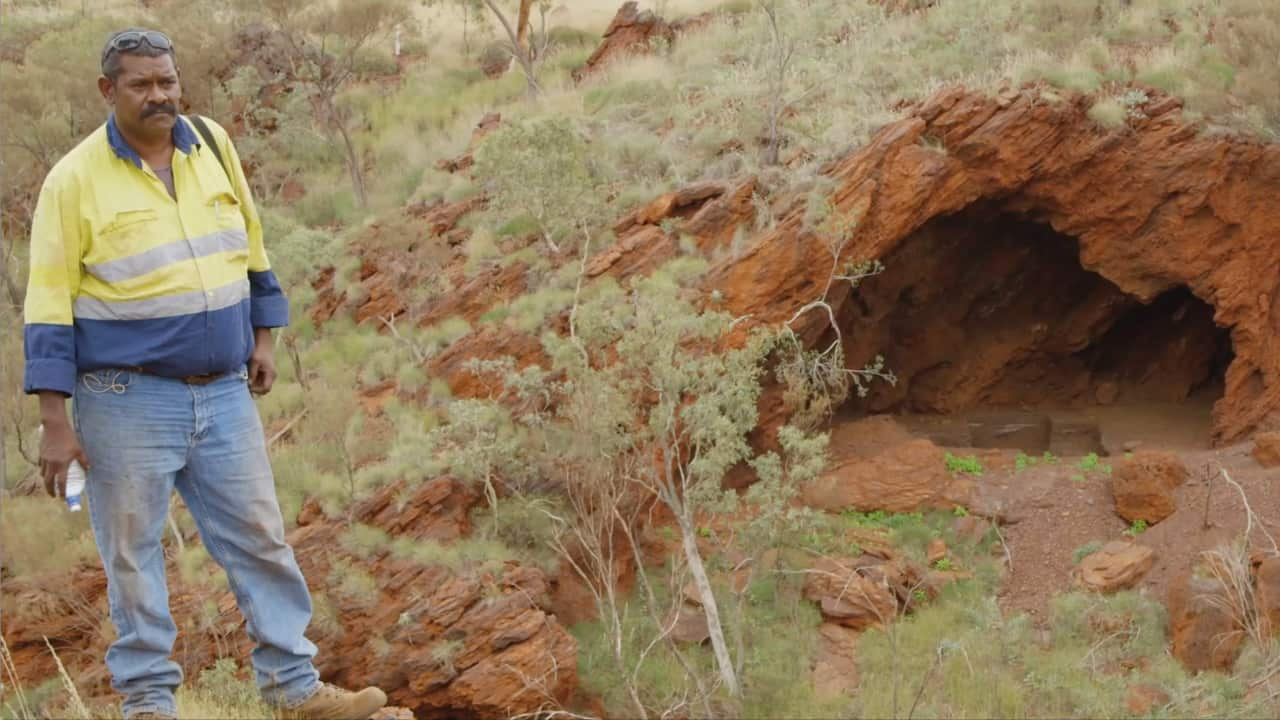Wintiwari Guruma Aboriginal Corporation (WGAC) has told an inquiry into the destruction of ancient rock shelters at Juukan Gorge that Fortescue Metals Group has been withholding mining royalties from Eastern Guruma people in Western Australia's Pilbara.
In fronting the inquiry on Tuesday, WGAC representatives said the mining giant told them they would pay the royalties, which were due in January, when the group signs off on a number mining leases presented to them a year ago.
WGAC's Tony Bevan said the group had asked for more information from FMG about these leases, and will not sign them until the extra information has been received.
He said FMG often withholds royalties as leverage over Traditional Owners.
“FMG routinely do not honour their agreement,” he said.
“Over the past three years we’ve started issuing dispute notices whenever they breach the agreement.
“We’ve issued six dispute notices in a period of a year or two."
But Mr Bevan said these dispute notices "go nowhere" and there is no disciplinary action for withholding the royalties from Traditional Owners.
The inquiry heard that 93 per cent of Eastern Guruma Country is covered by mining tenements; they have six Rio Tinto mines on their Country and one run by FMG.
Joselyn Hicks, one of the directors of WGAC, said many sites have already been destroyed by mining activities, and it is difficult to access the significant areas that still remain.
“We estimate that more than 20,000 drill holes have been drilled,” she said.
“More than 434 heritage sites have been destroyed due to mining activity. A further 285 are in very close proximity to mining operations.
“Many of our important places are diminished to the point that it’s almost impossible to visit.”
'Pause for thought'
Ms Hicks said, after the destruction at Juukan Gorge in May, Rio Tinto decided not to destroy a rock shelter at the Silvergrass mine on Eastern Guruma Country despite having section 18 approval, which would allow them to destroy it under the Western Australia Aboriginal Heritage Act.
“Rio recently decided not to destroy our 40,000 year old rock shelter at Silvergrass, even though Ben Wyatt had given them permission to destroy it,” she said.
“They told the media about it before they told us.
“We welcomed this decision but it was sad that it had to take the destruction of the PKKP site and international media attention to make government and mining companies pause for thought.” When Traditional Owners were asked how much confidence they had that the mining company would not destroy the site once the spotlight was off the issue of heritage destruction in the Pilbara, they answered, "None".
When Traditional Owners were asked how much confidence they had that the mining company would not destroy the site once the spotlight was off the issue of heritage destruction in the Pilbara, they answered, "None".

Juukan Gorge. Source: PKKP Aboriginal Corporation.
Ms Hicks said the agreements they have signed with Rio Tinto and FMG restrict their ability to protect their heritage from mining activities.
“The Traditional Owners have no power to protect our sites. We have to ask, sometimes implore FMG and Rio not to destroy our sacred places," she said.
“Sometimes they agree, sometimes they don’t. The government always supports them.
“Our relationship with RIo and FMG is therefore very difficult at times.”
The inquiry also heard from Yamatji Marlpa Aboriginal Corporation (YMAC), which represented PKKP people in negotiating their initial agreement with Rio Tinto.
YMAC CEO Simon Hawkins told the inquiry the corporation raised concerns about ther 'gag' clauses being included in the agreement, but the mining company would not change their stance on the issue.
“We tried tirelessly throughout the process to raise those objections - including meeting with executives within Rio who we thought would be more open to change it – but we were unsuccessful,” he said.
On Tuesday the the inquiry also heard from WA Aboriginal Affairs Minister Ben Wyatt, Yindjibarndi Aboriginal Corporation and mining company Roy Hill.
Rio Tinto is expected to front the inquiry again later this week.
The committee has also secured approval to visit the Juukan Gorge site next month and is awaiting a travel exemption from the Western Australian Government to enter the state.










